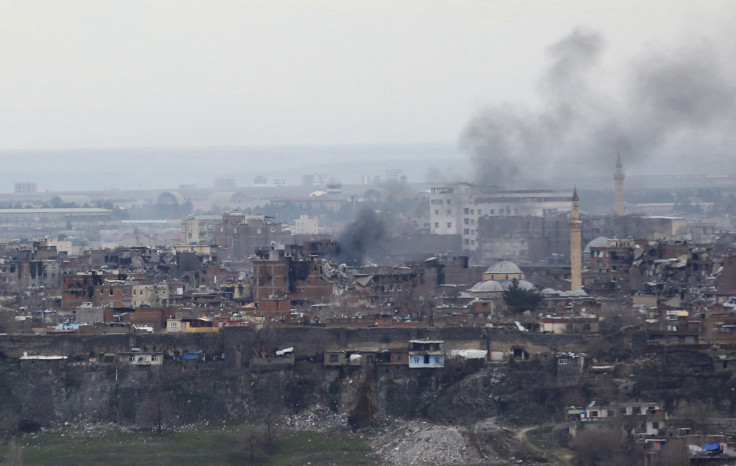Turkey bomb attack: Explosion hits military convoy in Diyarbakir

A Turkish military convoy travelling in the country's restive south-east has been hit by an explosion on 18 February, the day after a blast killed at least 28 people in Ankara. Emergency services rushed to the scene in the Sur district of Diyarbakir province.
At least six people, said to be all members of the military, were killed in the blast that was reportedly caused by a home-made device. The convoy was struck as it was heading south on a highway linking the city of Diyarbakir to the district of Lice.
There was no immediate claim of responsibility, but the attack bore the hallmarks of the outlawed Kurdistan Workers' Party (PKK), which is leading an insurgency in Kurdish majority areas of south-east Turkey.
The PKK resumed its attacks last summer after a shaky truce with the government collapsed. Ankara has responded with a heavy-handed crackdown, imposing curfews and carrying out deadly military operations condemned by human rights groups.
Turkish Prime Minister Ahmet Davutoglu has blamed the PKK and its Syrian ally the YPG for the large bomb attack that shook the capital on 17 February. Davutoglu said a Syrian suicide bomber with links to Kurdish militias was behind the explosion that hit the city centre, not far from the parliament and the armed forces' headquarters.
"It has been determined with certainty that this attack was carried out by members of the separatist terror organization together with a member of the YPG who infiltrated from Syria," he said, vowing retaliation. The prime minister said Syrian regime was also partially responsible for the bombing.
The accusations could prelude further Turkish involvement in the Syrian conflict. Turkish forces were already shelling Kurdish positions across the border in recent days, while the government sought allies for a possible ground invasion. Saudi Arabia had previously said it was available to send troops as part of an international coalition.
YPG's political wing, the PYD, denied any link to the Ankara bombing and warned the Turkish government against expanding its military operations into Syria. "We have no link to these bombings and with what is happening inside Turkey," PYD leader Salih Muslim told AP, adding a coalition of Kurdish and Arab fighters was ready to counter a possible offensive from north of the border.
The YPG has exploited heavy Russian bombardments on rebel forces north of Aleppo to gain ground in recent weeks, in a worrying development for Turkey that oppose the creation of a Kurdish-controlled a continuous stretch of land running almost the whole length of the Syrian-Turkish border.
More about Turkey
© Copyright IBTimes 2025. All rights reserved.






















